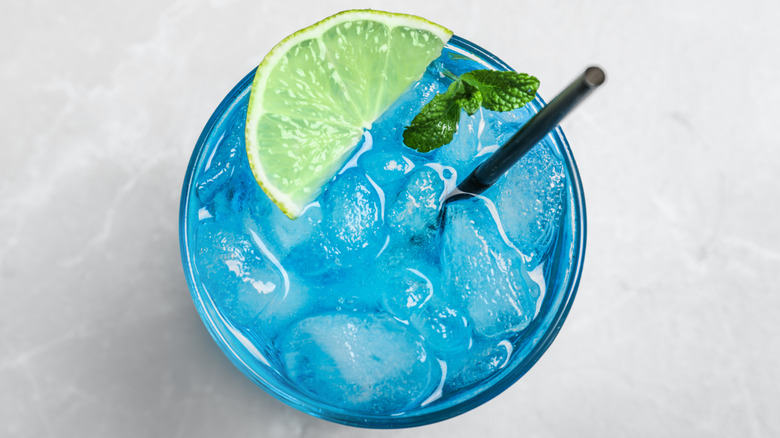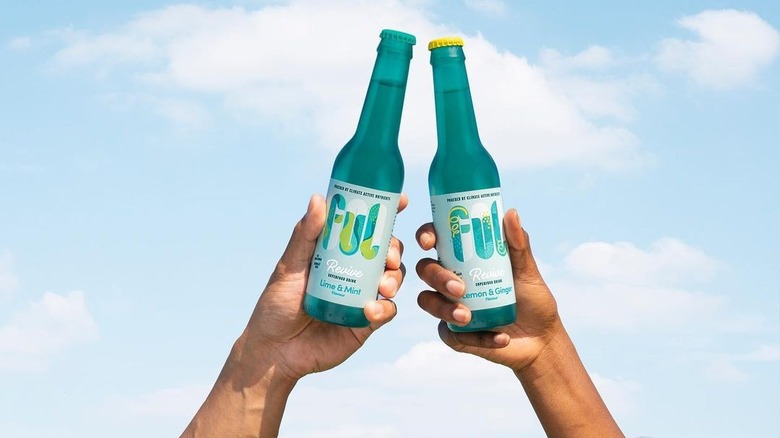This Could Be The First Carbon-Negative Soda
It goes without saying that soda isn't exactly good for you, but the truth is, it isn't any better for the environment either. A liter of Coca-Cola has a carbon footprint of 346 grams, which means the more of it that's produced, the more it contributes to climate change. Dutch soda brand Ful, on the other hand, has a carbon footprint in the negatives, Fast Company reports. That may seem impossible, but the explanation lies in Ful's main ingredient, a bright blue superfood called spirulina.
Spirulina is a form of algae, and it's a gamechanger for the soda production process because instead of generating CO2 it absorbs it and converts it to nutrients, Ful explains. On top of that, there's the fact that spirulina, being an algae, doesn't require huge expanses of land, nor does it need pesticides, fertilizer, or fresh water in order to be cultivated. The result is a soda that's not only sustainable, but actually helps reduce the carbon footprint of the food industry.
What does Ful taste like?
Any soda made with algae probably doesn't sound that appetizing, but despite the bold blue hue of the spirulina, Ful still tastes like a soft drink. According to the brand's website, Ful currently comes in three different flavors — lime and mint, lemon and ginger, and white peach. In addition to spirulina, each Ful flavor contains carbonated water and is sweetened with natural flavors and extracts including apple juice, lemon juice, pear juice, and ginger. Ful shares on its Instagram page that any one of the sodas also works well as a cocktail mixer or as a substitute for tonic water.
But if you're not entirely sold on the taste and the carbon negative footprint, perhaps the nutritional benefits will convince you. As Ful highlights on its website, spirulina is often referred to as a superfood because it's packed with the good stuff. The algae is naturally rich in antioxidants, vitamins, and minerals that keep you hydrated and energized when you drink it. Soda that's good for both you and the environment might sound too good to be true, but thanks to spirulina, Ful has accomplished just that.

